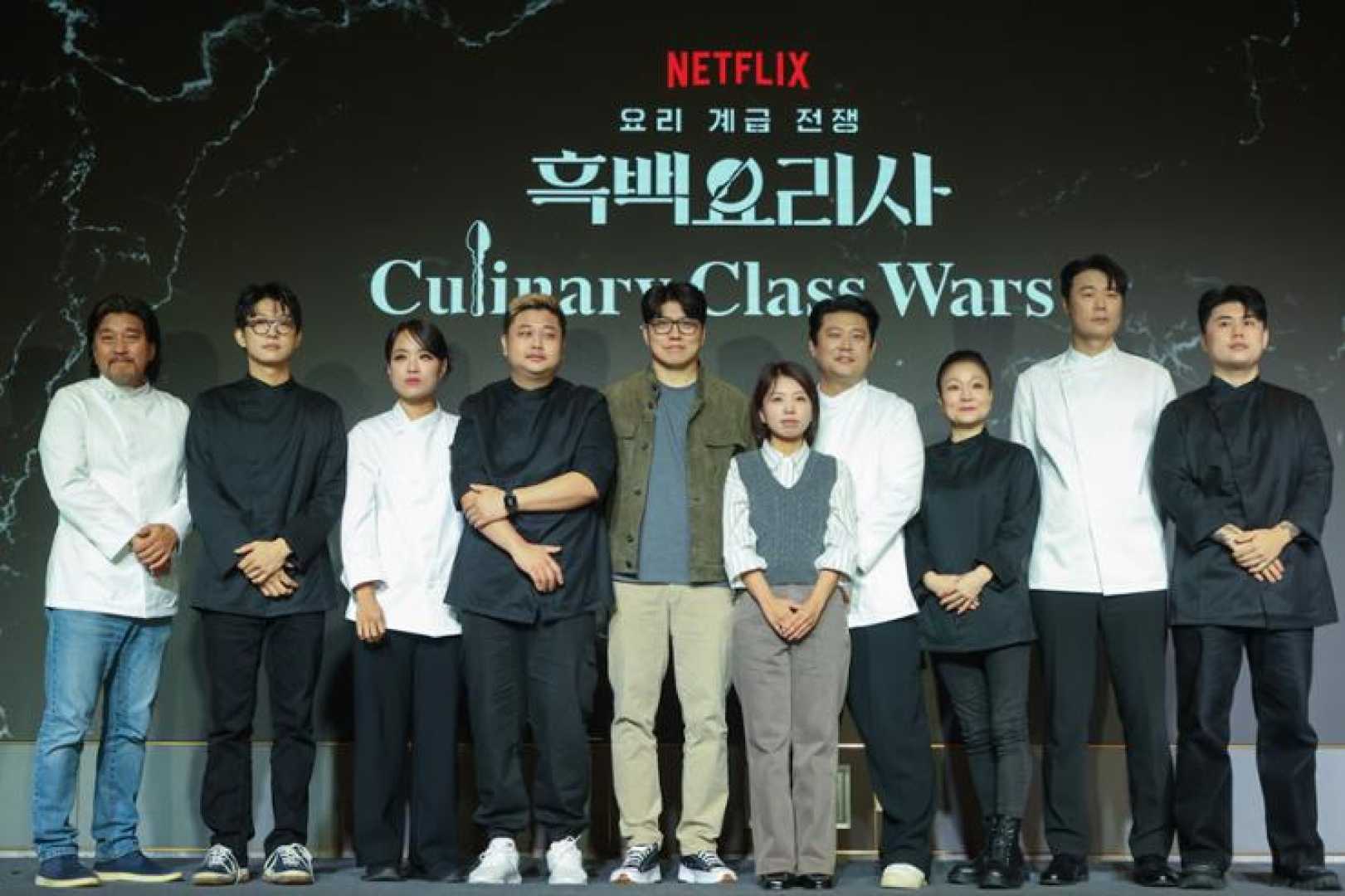Entertainment
Korean Cooking Show ‘Culinary Class Wars’ Gains Global Popularity on Netflix

The Netflix original series “Culinary Class Wars” has made a significant impact on the global stage, becoming the most-watched non-English series on the streaming platform for two consecutive weeks. The show is capturing the attention of audiences in several countries, including Korea, Taiwan, Singapore, and Hong Kong, since its release on September 17, 2024.
The cooking survival show involves 100 chefs engaging in intense culinary battles. The unique format has contributed to its widespread popularity, showcasing a mixture of well-known chefs and hidden culinary talents. According to director Kim Eun-ji, “The love and support for the 100 chefs is overwhelming. It’s wonderful to see the positive impact on the Korean food industry.”
A key element of “Culinary Class Wars” is its division of participants into two groups: the “black spoon” class, involving 80 emerging chefs from various backgrounds, and the “white spoon” class, which includes 20 celebrity chefs. This competitive structure adds an adrenaline-pumping dynamic similar to sports competitions.
The program has turned several chefs into overnight celebrities, significantly boosting their restaurants’ visibility and success. Participating chefs such as Choi Hyun-seok, Choi Kang-rok, Jung Ji-sun, Lu Ching Lai, and Edward Lee have seen a rise in reservations at their establishments.
Incorporating memorable dishes from the show into restaurant menus, meal kits, and packaged products has further fueled its popularity. There has been an enthusiastic response online, with visit logs to chefs’ restaurants, clips of their interactions, and an expansive list of over 100 restaurants curated on Naver Maps, emphasizing the show’s influence on its audience.
Director Kim Eun-ji attributes the program’s success to its “perfect blend of experienced and new chefs,” allowing viewers to explore new culinary perspectives and discover fresh culinary talents. Chef Choi Hyun-seok, known for operating Seoul’s high-end restaurant Choi Dot, expressed how the show offered him a platform to focus purely on his culinary skills, distinguishing it from other cooking shows he has participated in.
Chefs like Edward Lee, recognized from U.S. series “Iron Chef” and “Top Chef,” praised “Culinary Class Wars” for providing a distinguished opportunity to showcase Korean cuisine on an international level. “I reflect on my history and life, trying to piece together the puzzle. I always find myself returning to Korean ingredients because they resonate with my soul,” Lee said during a press event.
Kim Me-roung, a lesser-known contestant, praised the show for reviving interest in traditional markets like Gyeongdong Market in Seoul, where she sells kalguksu. “Thanks to the show, I’ve noticed a significant increase in young visitors,” Kim remarked, highlighting the show’s role in increasing local market foot traffic.












